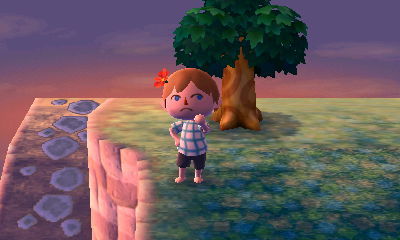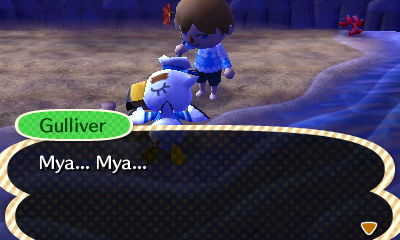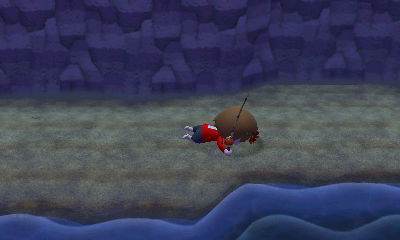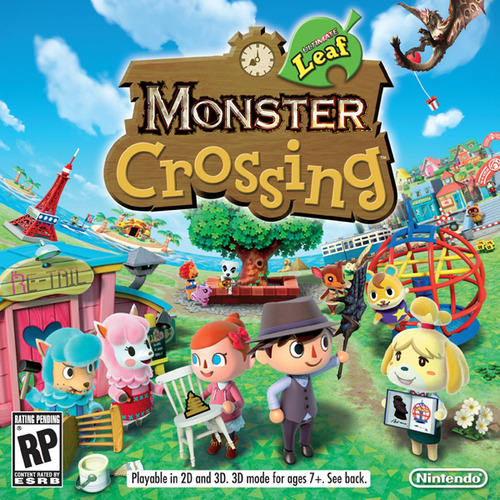Trending
Opinion: How will Project 2025 impact game developers?
The Heritage Foundation's manifesto for the possible next administration could do great harm to many, including large portions of the game development community.
ACNL presents a world in which there is always something happening and always something to do. But I had to ask myself, are these happenings that I want to be a part of? Are these somethings that I am motivated to complete?

Although it is common for people to describe games as "time wasters" (and not necessarily with a negative connotation), I have never thought of games as a waste of time. However, having played Animal Crossing: New Leaf (ACNL), I believe I have a better understanding of what people mean when they say such things.
After resisting the endless fanfare, marketing, and social media hype surrounding ACNL for over a month, I finally purchased it to fill the void in my 3DS action. You see, I had finally completed Paper Mario: Sticker Star, a game which I highly recommend to all, and couldn't locate a shelved copy of Monster Hunter 3 Ultimate, a true game of the year that won't win any awards, to save my life. Thus, the timing was right to pick up ACNL and see what all the hoopla was about.

What's all this, then?
Ultimately, I played about 18 hours of the game over a 3-week timeframe. I found it mildly useful for a 5-20 minute play session. However, the game failed miserably as a travel companion, since it cannot captivate the attention for an hour or two at a time, as have many other leading 3DS titles over the past few years.
There were a few bright spots in the game, such as turnip arbitrage, building the museum through donations, and fortune cookies (finally somebody game me something to do with those blasted play coins). However, the experience over time seemed increasingly superficial and shallow. I'd log in, dig up fossils, run them to the museum, buy fortune cookies at the shopping mart, and turn them back in for obscure furnishings. This was a daily 5-10 minute time-wasting routine. The animals start to repeat themselves. I start to avoid them, rather than tacking on another menial 5-minute time-wasting task. Oh, there's a special event today. Oh, I have to log in at a specific place and time to experience it - good luck rearranging my real life around such things. Hmm, it's too bad nothing is happening right before bed when I like to play, as if no one has anything to do in the mornings or afternoons in the real world. And so on…

Exactly...
Perhaps the most jarring realization that I had about the beloved ACNL is that its design reflects little else than than the hordes of much maligned monetized free-to-play (F2P) games. ACNL consists almost entirely of small, frequently repeated, and (dare I say) pointless tasks, such as collecting shells and rearranging furniture. Compare these with endless planting and harvesting taps in Hay Day or plopping yet another miscellaneous fixture in Gardens of Time. Essentially, ACNL is your typical monetized F2P with a few twists. First, it has a one-time up-front cost, rather than a free initial price. Second, while it makes similar use of repeated menial tasks to keep the player active, it does not significantly delay, disrupt, or deceive the player in order to extract more money over time. Third, it boasts a vast amount more content than its counterparts (e.g. more resources to collect, more furniture to arrange, more animals to have repetitive conversations with).
Take these points in isolation and ACNL may well be an exemplar of what monetized F2P mobile games should have been going for. Instead of bludgeoning players over the head and pestering them persistently, just let them do what they want, when they want. Instead of trying to extract money from them, just get a fair price for your work up front and move on.
By the way, I would urge anyone who actually does play or enjoy the sorts of mobile games referred to here to play ACNL instead. I reckon they would appreciate being respected as a player and provided with a more robust amount of content. Alas, I fear that most such players are gaming on mobile phones, not a dedicated $200 handheld console. On the flip side, I doubt that mobile developers can or will provide these players with an ACNL-like experience. Thus, I see a style of game and a market of players on opposite banks of a river and unable to swim.
In contrast, take ACNL among the entire universe of games and it ranks lowly along with its monetized F2P kin. While it may be an exemplar of one type of poorly-conceived game, it cannot be said to be very good or enjoyable overall. At best, ACNL is an excellent way to waste time. At worst, ACNL is a meaningless waste of one's precious time on Earth. Regardless, no game should desire such outcomes.

Wasted away again in Animal Crossing
Indeed, ACNL presents a world in which there is always something happening and always something to do. But I had to ask myself, are these happenings that I want to be a part of? Are these somethings that I am motivated to complete? In my case, the answer to both questions was, decidedly not. In the end, I traded in my copy of ACNL towards a second copy of Monster Hunter 3 Ultimate (3DS version to accompany my Wii U copy). Not all is lost however, as my crossover humor blog, Monster Crossing: Ultimate Leaf, has enough content to last for at least a couple months.

There's a new New Leaf in town
Read more about:
BlogsYou May Also Like